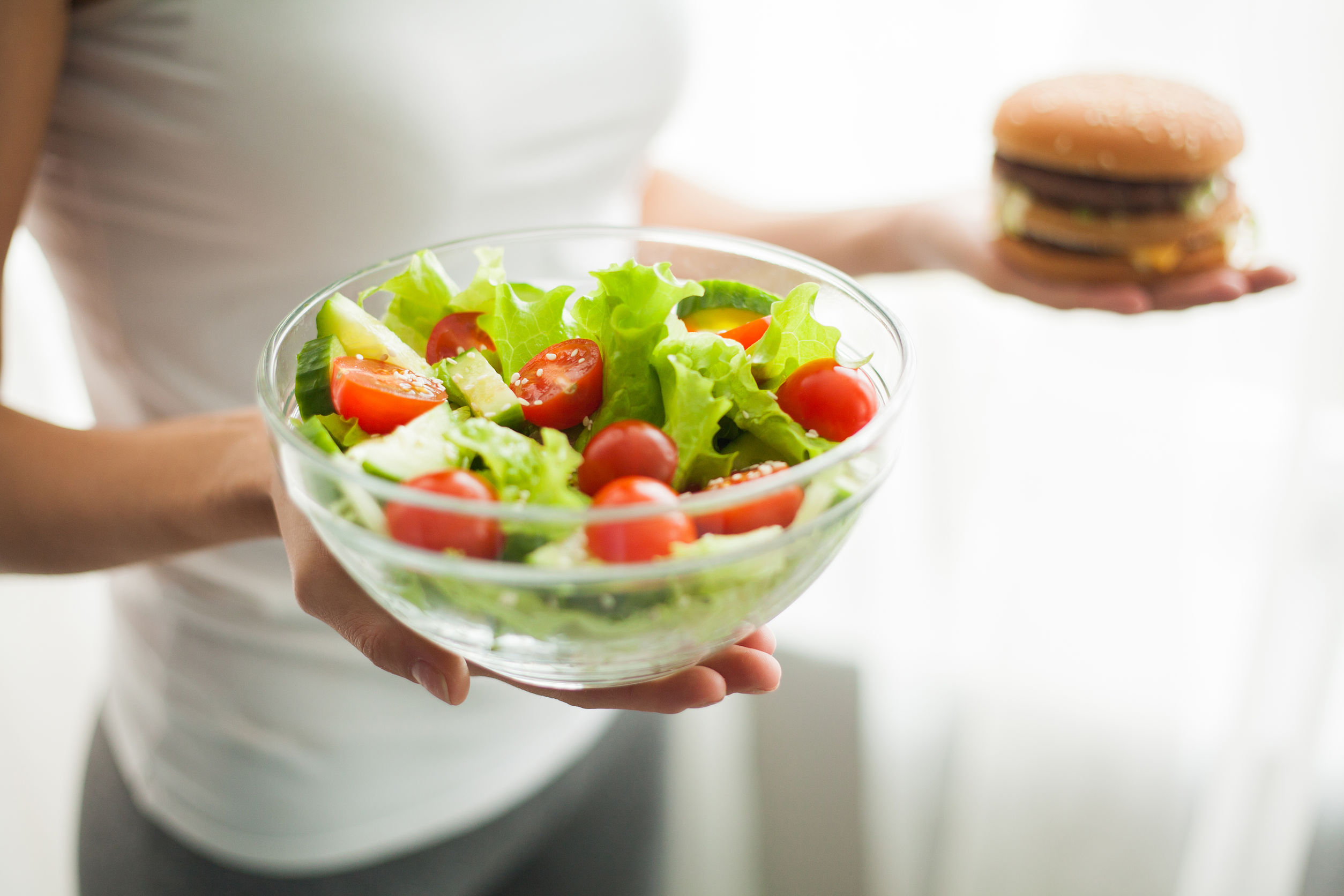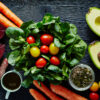”Georgia, how hard is it to say no to junk food? It is, in part, difficult to refuse these foods because they are designed to be irrestible! This week's article discusses more and offers strategies to limit the influence of junk food. Enjoy!
Reading time: 8 Minutes
MWi Hack:
- Learn how to remove junk food from your diet
- Get more educated on topics related to addiction
MWi Summary:
- Junk food is partly so addictive because manufacturers focus on creating the most pleasurable flavor combinations that ignite cycles of addiction.
- There are many strategies to try to avoid junk food such as planning meals/snacks ahead, shop the perimeter of the grocery store, and working on stress management.
How to Stop Eating Junk Food: 10 Tips to Control Your Cravings
Why is junk food so addictive?
It’s 3 p.m. and you’re experiencing that all-too-familiar afternoon slump. It brings on a fierce sugar (or salt or caffeine) craving. You’re not alone. Many people deal with cravings on a frequent, even daily basis.
Believe it or not, food manufacturers often create foods with the goal of igniting that cycle of addiction in consumers. They aim for the “bliss point” in a product. This is the point at which the eater experiences the ultimate pleasure, with not too much and not too little salty, sweet, and fatty flavors. These combinations are particularly hard to resist, and your brain reacts in a similar way as with cocaine and other drug addictions.
While succumbing to cravings may seem inevitable in the moment, there are a few simple things you can do to control them. Here are 10 ideas to get you started.
1. Plan ahead
There’s no better way to handle cravings than planning your meals and snacks ahead of time. If you have a healthy meal and snacks packed and ready for you at lunchtime and in the afternoon, you’re far less likely to grab a leftover piece of pizza, order French fries, or eat the sweets someone brought into the office.
In other words, you will reduce your “food cue reactivity.” This is what researchers call your susceptibility to be influenced by the food smells, advertisements, and conversations surrounding you every day.
Try to plan out each week’s meals on Sunday, or the day before your workweek starts. Go grocery shopping for what you need. Then prepare large batches of easy foods like brown rice, beans, stir-fried or roasted vegetables, or cold salads. Use food storage containers, mason jars, or foil to pack up serving sizes that you can grab in the morning on your way out the door. Fruits like apples, bananas, and oranges travel well and can be kept on your desk, making them easy afternoon snacks.
2. Shop the perimeter
The perimeter of the grocery store typically includes the produce, dairy, meat, and fish sections. This is where you’ll find real foods, rather than highly processed food products. When you go shopping, try to purchase items only from these sections. If a food item has more than a few ingredients on the label (or ones you can’t pronounce), don’t buy it. This is a key step in transitioning your diet to whole foods.
Over time, your body and palate will get used to:
- fresh vegetables
- fruit
- grains
- proteins
You’ll be getting all the nutrients you need from these healthy foods, so your cravings for the fake stuff will start to diminish. It may take a few weeks, but eventually, it won’t even taste good to you!
3. Eat healthy fats
One of the most common nutrition myths is that fat makes you fat. In fact, your body needs fat! However, there are many different types of fat. You should avoid trans fats and limit saturated fats, but heart-healthy fats like nuts and avocado will help you feel full and reduce cravings.
Have a handful of mixed nuts as an afternoon snack. Or you can make a homemade salad dressing with olive oil and vinegar. Adding fresh guacamole or a fatty fish like salmon to your day is also a great way to incorporate healthy, filling fats.
4. Eat enough protein
Protein makes you feel full, often more so than other macronutrients like carbs. Fill your diet with healthy sources of protein including:
- fish
- beans
- vegetables
- nuts
When you’re full, there’s less room — and less desire — for junk food.
5. Try fruit
Fruit has sugar, but it has a lot of vitamins, antioxidants, and water, too. It also contains fiber, which slows and balances out the effects on your blood sugar. This prevents the sugar crash. Once you wean yourself off of manufactured sugar, fruit will taste a lot sweeter and more satisfying to you. Grab a bowl of berries or a piece of watermelon if you’re craving something sweet.
6. Taste the rainbow
Add some new and different foods to your routine. The more varied your diet, the less likely you will get bored or crave junk food. For example, add a new green to your salad (mustard greens, anyone?), or try a new type of fish this week like tuna.
Bonus: Eating diverse foods of many colors boosts your overall health and helps with disease prevention, too. Examples include purple potatoes, red beets, orange carrots, and green kale.
7. Think about junk food differently
A 2013 study showed that when people were trained to look at and interpret one of their most-craved junk foods in a negative light, the desire for it lessened. Participants were asked to view the craved food as if:
- they were already feeling very full
- they just saw the food item sneezed on
- they could save the item for later
- they were told about the negative consequences of eating the food (stomachache, weight gain)
Your mind is much more powerful than you might think. It can’t hurt to experiment!
8. Focus on adding healthy foods
A study in the journal Nutrients showed that focusing on the positive side of healthy eating is more effective than focusing on the need to remove junk food.
The more healthy foods you add-in, the easier it will be to crowd out the unhealthy ones. Stay positive!
9. Work on stress management
There’s almost always an emotional component behind cravings. Sure, you really need the brownie because you like the flavor. Or your blood sugar is low and you need an energy boost. You’re more likely to grab the Cheetos or leftover cookies when you’re upset or stressed by something.
Consider how you may be eating (or drinking) as a way to stuff feelings, distract yourself, or procrastinate. Try to be compassionate to yourself and do some gentle exploration. Practice redirecting yourself when you feel the urge to reach for food instead of doing what needs to be done, or saying what needs to be said.
Healthy stress management tools include:
- taking a walk or run
- yoga
- meditating for a few minutes
- taking some deep breaths
- talking to a trusted friend or family member
- doing something creative like painting
- journaling
Experiment and find what works best for you. If your stress feels overwhelming, talk to your doctor or mental health professional. They can offer emotional support and suggest other effective, healthy, non-food coping methods.
10. Get more sleep
Most people don’t get nearly enough sleep. And while you’re probably aware of the effects on your mood or energy level, you may not know that lack of sleep is also thought to play a big role in junk food cravings. A recent study in Sleep showed that sleep restriction resulted in more hunger and less ability to control the intake of “palatable snacks.”
So make the effort to turn in a little bit earlier every night. You might also want to stop eating a few hours before you intend to go to bed. A full stomach can cause indigestion and interfere with your ability to fall or stay asleep.
The Takeaway
Although our brains are wired to eat a variety of foods, junk food may reduce this desire. This can trap you in a vicious cycle of unhealthy eating. The more you eat junk food, the more you crave it. By following the simple steps, you can break the cycle today and lead a healthier life.
MWi would like to thank Erin Moore for sharing her expert insights with our community through the Healthline Platform. Read the original article:
https://www.healthline.com/health/food-nutrition/how-to-stop-eating-junk-food#sleep
More on the Author:
We want to help you own your well-being.
Healthline covers all facets of physical and mental health openly and objectively because we’re here for the whole person — for your whole life. And because people come to us with unique challenges we listen closely and put empathy first across our organization. In everything from our personal perspectives to our commitment to inclusivity, you’ll see that we feel with you.






